Summary of the 16th International Dialogue on Population and Sustainable Development in Berlin
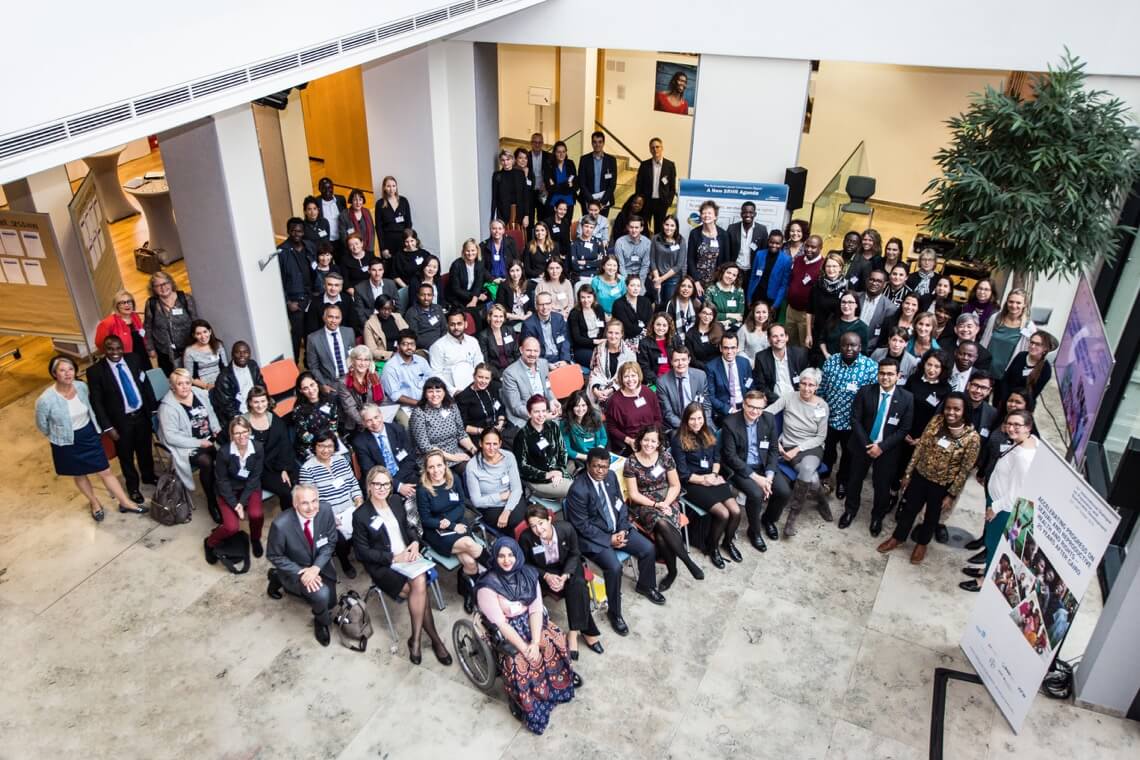
On 23rd and 24th October 2018 over 100 representatives from governments, civil society, academia and private sector from almost 40 countries gathered at the 16th International Dialogue in Berlin. In a series of discussions and participatory formats, they discussed how to push progress for sexual and reproductive health and rights (SRHR) for everyone.
A new road map for sexual and reproductive health and rights
25 years ago, at the International Conference on Population and Development (ICPD) in Cairo, the United Nations adopted the Cairo Programme of Action, which put forward a bold new vision recognising for the first time the right of every individual to sexual and reproductive health. But what has happened to that vision in the intervening quarter of a century, and how have things changed?
The 16th International Dialogue on Population and Sustainable Development took stock of the progress made and discussed how to move the agenda for sexual and reproductive health and rights (SRHR) forward. The global and regional follow-up to the Cairo Conference as well as the findings of the recently published report by the Guttmacher-Lancet Commission on SRHR were used to inform discussions.
‘Dialogue as a powerful tool for change’
The Dialogue opened with words of welcome from Oliver Haas, GIZ’s Head of Section Health, Education and Social Development and Frank Strelow, Bayer AG’s Vice President of Global Health Care Programmes. ‘Dialogue is one of the most powerful tools for social change’, said Mr. Haas in his speech. Through strengthened cooperation, he said, we have to make sure, that every person can make informed decisions about what happens to their bodies, that nobody should be discriminated against based on their sexual orientation or gender identity and no woman should die of preventable causes such as poor maternity care and unsafe abortion. Mr. Strelow added that reproductive health research and donating contraceptives and funding for family planning services were core to the Bayer’s social responsibility programme. He reminded the participants of the huge changes that had taken place in the global availability of contraceptives already within his lifetime. ‘I am very passionate about the subject of this conference, because it’s about choice.’
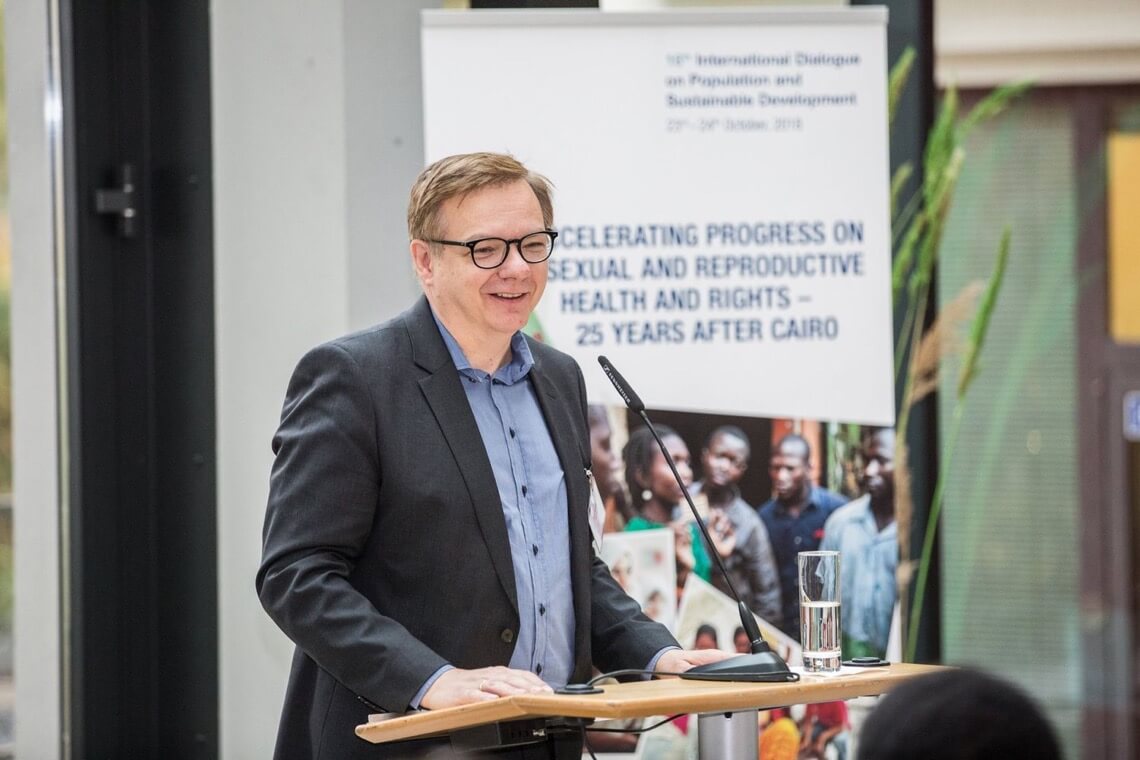
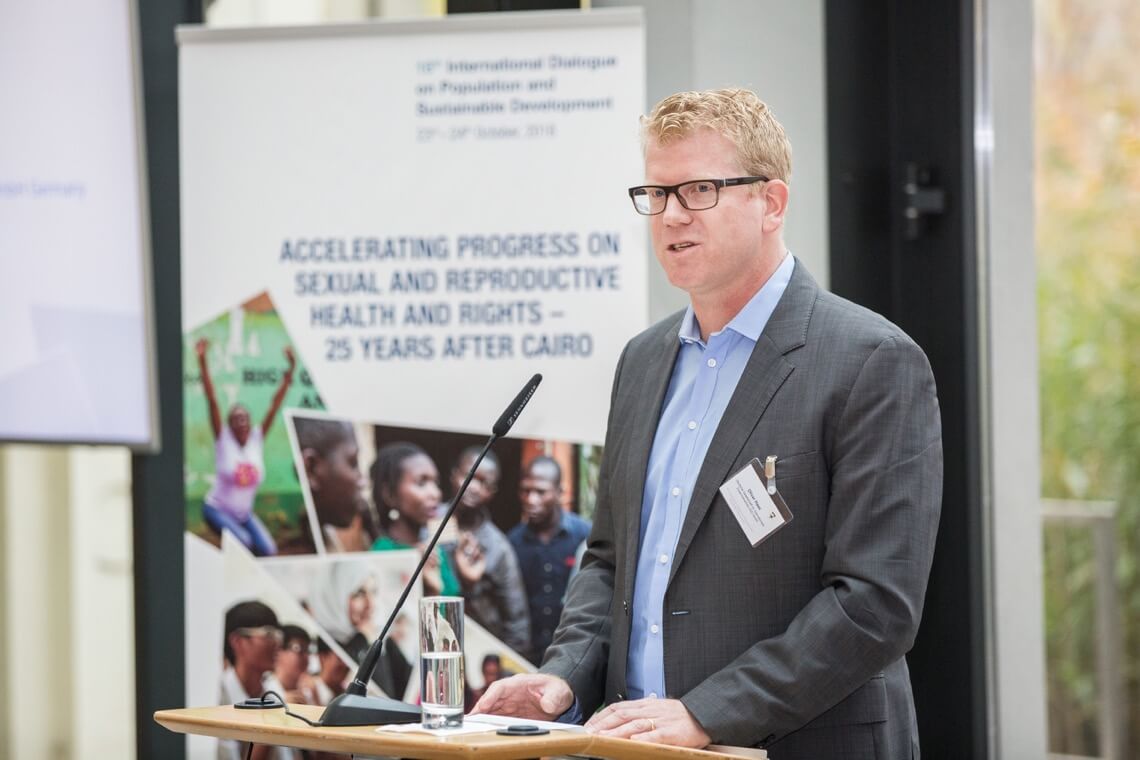
A new integrated definition of SRHR: ‘grounded in evidence, but rooted in human rights’
Following these welcoming opening words, Ann Starrs, co-chair of the Guttmacher-Lancet Commission gave a brief overview of the Commission’s report. The report, she said, provides a roadmap for people to come together as they move forward towards SRHR for all. It offers a new, integrated definition of what sexual and reproductive health and rights are. For the first time, this definition includes elements such as infertility, reproductive cancers and sexualized and gender-based violence. This integrated definition also recognises that, sexual and reproductive rights are fundamental to sexual and reproductive health, and vice versa. Sensitive issues such as abortion or the needs/rights of LBGTIQ* (lesbian, gay, bisexual, transgender, intersex, queer or questioning) groups that block movement and consensus need to be addressed before further progress can be made.
‘A battle for dignity and human rights’
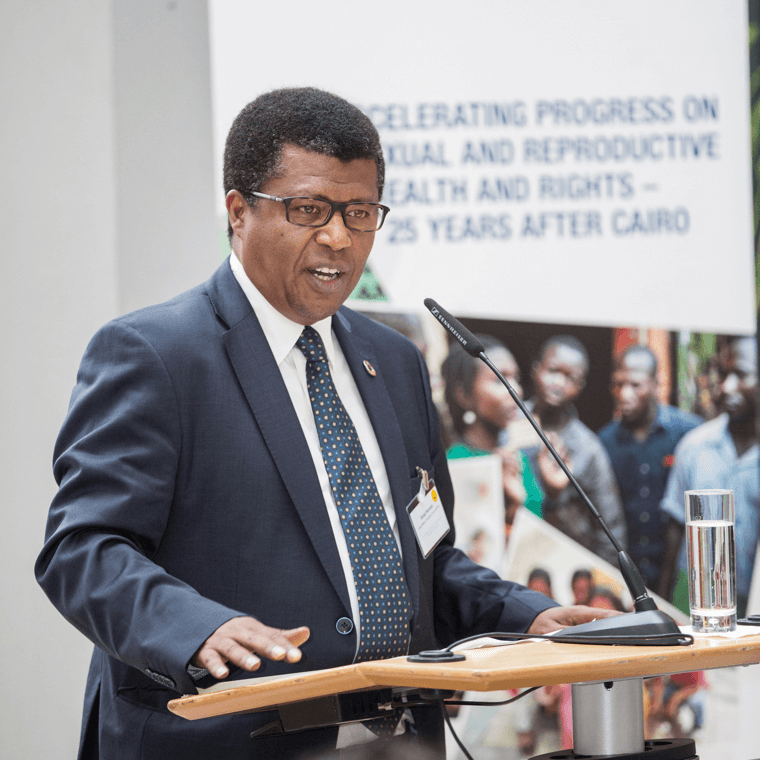
After that, Dereje Wordofa Gidda, Deputy Executive Director of the United Nations Population Fund (UNFPA) reflected on the challenges of implementing the Cairo Programme of Action. Previous progress, he said, had been too slow and uneven leaving the most vulnerable people behind. Despite such difficulties, Mr. Wordofa Gidda concluded that he remains hopeful that solutions can be found. ‘We are in the middle of a battle over dignity and human rights, but we believe the 25th anniversary of the ICPD in 2019 is an opportunity to push the agenda forward.’
Working together to embrace complexity
One of the emerging questions from the panel discussion that followed was how to embrace the complexity of SRHR issues, but participants felt the Commission’s report would be a catalyst for raising standards and bolstering rights arguments. The task now, said Mina Barling, Director of External Relations for the International Planned Parenthood Federation (IPPF) in the United Kingdom, was to decide how to translate the report’s recommendations into concrete, meaningful actions. Stigmas and taboos need to be challenged and we need to ensure that essential SRHR services are available to everyone, including marginalised groups, throughout their lives.
In a series of participatory formats such as working groups and open space discussion sessions, participants then discussed the ways the Commission’s report can push the SRHR agenda forward and how the Guttmacher-Lancet Commission’s recommendations can be applied at global, regional and national levels. Participants generally agreed that responses to these issues needed to be clear and consistent.
‘The power of digital opportunities for SRHR is enormous.’
The first day of the conference ended with an evening public panel discussion on the opportunities and risks of digital approaches in the provision of SRHR. ‘Back then in Cairo, nobody anticipated that the world would go through a digital revolution bringing with it fundamental changes’, said Heiko Warnken, Head of the Division for Health, Social Security and Population Policy at the Federal Ministry for Economic Cooperation and Development (BMZ) in his opening remarks. ‘It is time to discuss how we can harness the great power of digital technologies to realise sexual and reproductive health and rights.’
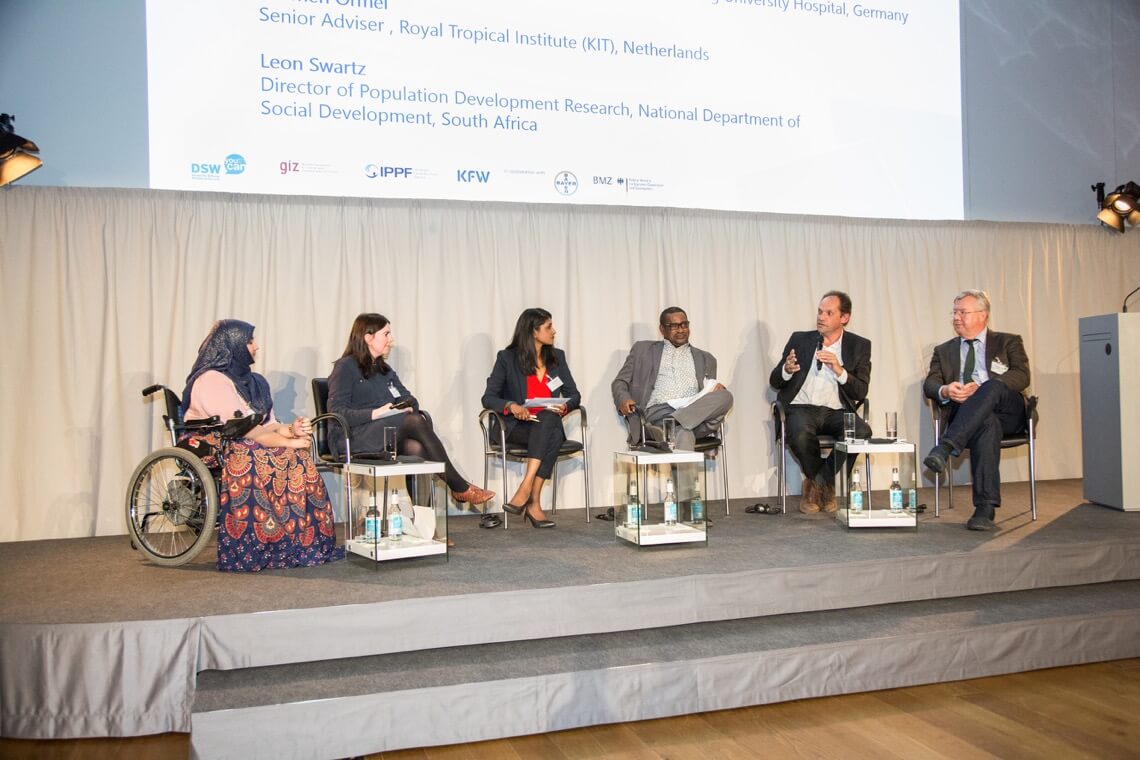
All the panellists recognised both the enormous advantages and the potential risks of digital technology when it comes to SRHR. Among others, the discussion touched upon big digital divides between urban and rural areas and men and women, how digital technology can be used as an equaliser to address gender imbalances or for cervical cancer screening in remote and under-resourced areas as well as confidentiality when it comes to the handling of sensitive data and misuse of personal information. Caroline Kent of the Berlin-based Tactical Technology collective reminded the audience to keep in mind that technology is never neutral. ‘The biases we see in our analogue world are often replicated in the digital world.’
Advancing SRHR through existing initiatives
On the second day of the Dialogue, participants looked at ways of advancing the Commission’s recommendations through existing initiatives. First, a lively dialogue on the ways in which the SRHR community could strengthen collaboration took place. Among others, representatives from SheDecides, the Partnership for Maternal, Newborn and Child Health (PMNCH) and UHC2030 (the global movement to build stronger health systems for Universal Health Coverage) shared and exchanged their views on how to take up the Commission’s recommendations. After that, 10 participants hosted a series of poster sessions, in which they talked about various SRHR programmes on the country level. These included presentations about efforts to counter child sexual exploitation in Zambia and child marriage in Ethiopia, removing barriers to SRHR in Nepal and changing male mind-sets in Bangladesh. What the sessions showed is that they are various entry points for various SRHR projects and the need to integrate these approaches.
Applying the lessons learnt
At the end of the two-day Dialogue, participants said they felt confident that the new definition of SRHR and other recommendations made by the Commission’s report could be applied to their work and that they felt motivated and energised to drive forward the Cairo agenda. Tanzila Khan from the Hashoo Foundation in Pakistan summed up the conference as such: ‘I think the Dialogue is very inspiring, it is a great platform for networking. I have come across so many useful resources I will definitely be applying in my work.’